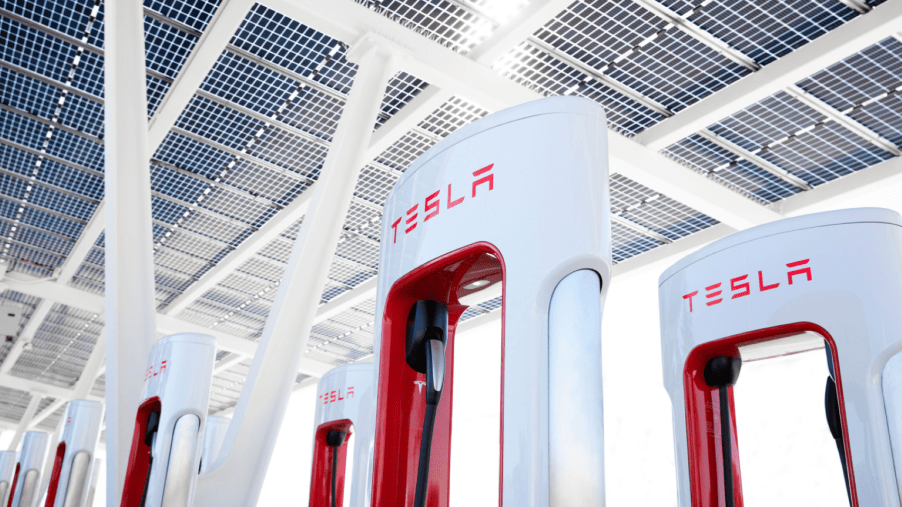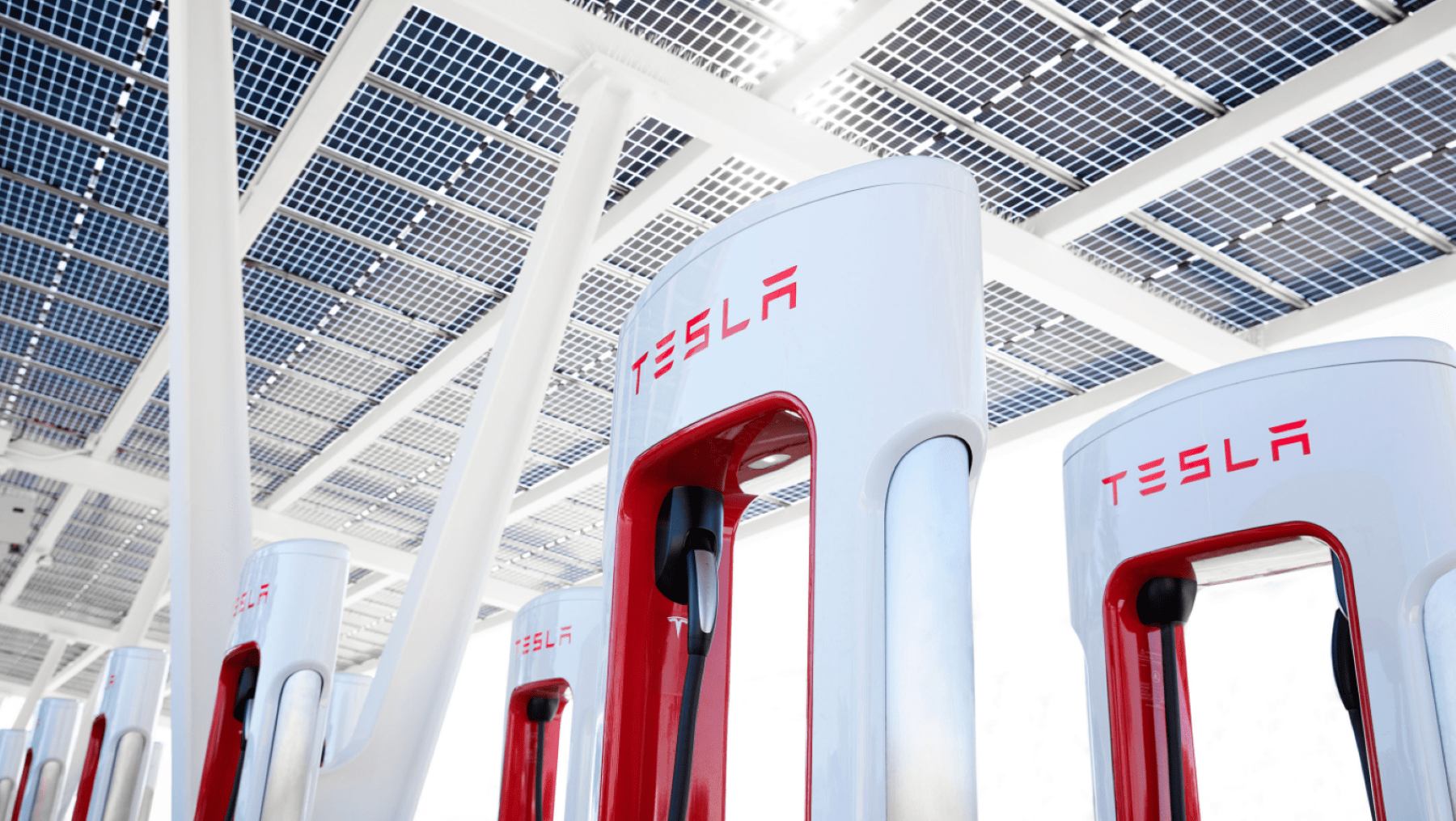
How Much Does It Cost to Charge a Tesla?
It’s an exciting time to own an electric vehicle. Technology is advancing at a record pace, and automakers are eagerly introducing new hybrid, plug-in hybrid (PHEV), and electric models to product lineups. Tesla has been leading the way in this industry for years now, though other brands are attempting to catch up.
Before signing on the dotted line and purchasing an EV model of your own, it’s important to understand what it will cost to charge a Tesla. You don’t want to commit to reducing your carbon footprint until you know how to determine the cost-savings benefits. So, grab a calculator and follow along as we find out how much does it cost to charge a Tesla.
How to determine the energy cost of recharging a Tesla electric car

Electric vehicles do not burn gasoline, but the EPA still uses the term MPGe (miles per gallon equivalent) to rate the power consumption. Meanwhile, the U.S. Department of Energy uses the term eGallon for comparing the cost of using electricity to power a vehicle compared with a similar model that requires gasoline.
All vehicles have an associated cost for the fuel that is required to power them. To calculate the amount for gas-powered cars, you take the number of miles driven, divide it by the vehicle’s estimated mpg, and multiply the result by the gas price per gallon. A different formula is used to determine the cost of powering an electric car. The price per kilowatt hour (kWh) for electricity is used instead of the price per gallon of gasoline. Also, miles per kWh are used instead of miles per gallon. The amount of electricity needed to travel the same distance as a gas-powered car is multiplied by the average kWh hour to determine the eGallon average cost.
Using 2022 data, Choose Energy determined that, on average, it costs 69% less to charge a vehicle than it is to use gasoline. The widest eGallon gap is in Washington, where it costs $3.22 more per gallon to fuel a car.
The average cost to charge a Tesla
According to Solar Reviews, the average cost to fully charge a Tesla Model X is $15.21. The amount is calculated based on a vehicle that uses a 100 kWh battery with an 85% charging efficiency rate, which is the standard for Level 2 charging stations. Meanwhile, the average household cost of electricity of $0.13 per kWh is used. Lasting 360 miles on one charge, the cost per mile is approximately $0.042 per mile or $4.24 per 100 miles driven.
Using the same calculations, a Tesla Model 3 with a 50 kWh battery and 263 miles of range will cost $7.65 for a full charge. The cost per mile is approximately $0.03 or $2.91 per 100 miles. However, the Model 3 Long Range and Performance trims with extra range and electric power will cost approximately $12.54 for a full charge. The cost per mile slightly increases to $0.036 for the Model 3 Long Range and $0.04 for the Model 3 Performance.
The Tesla Model S Long Range variant runs 412 miles on one charge, costing $15.29. The cost per mile is $0.037 or $3.70 per 100 miles.
Lastly, the cost to charge the battery on the new Tesla Model Y is $11.47. It is equivalent to $0.047 per mile or $4.70 per 100 miles.
It’s important to note that these figures are just estimates and that charging costs may fluctuate based on the type of charger, the actual cost of electricity, and the battery level of your Tesla model before charging.
What are the different ways you can charge a Tesla?
Ever since the advent of EVs, consumers have been debating the cost-saving benefits of driving a greener car. However, even with electric vehicles, the cost varies depending on the type of vehicle and how it is used. Most electric vehicle owners opt to recharge their cars in their driveways or garages using a home charger. New solar power systems installed in the home can now reduce the charging costs by as much as 40%, according to Solar Edge.
According to Tesla, Supercharger stations are located throughout the country and offer a convenient way to recharge, especially when traveling long distances. It takes approximately 45-50 minutes to charge Tesla models in an urban center, according to the Los Angeles Times. The cost to use these supercharger stations will vary from location to location, but generally, it appears that the cost of charging a Tesla will almost always be lower than filling up a car with gas.


